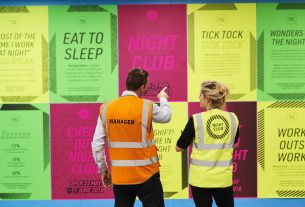If Wales’ Workplace Recycling Scheme sets a precedent, enough extra food waste could be recycled in the next year to offset 8 million tonnes of CO2
More than 8 million kilograms of extra carbon dioxide equivalent (CO2e) could be offset by Simpler Recycling legislation*, experts at sustainable waste management company Biffa predict.
Simpler Recycling – which became law on March 31st – saw food waste collections become mandatory alongside the separation of other recycling materials.
Analysts at the firm have benchmarked the inflation against the success of the Welsh Workplace Recycling scheme, which saw Biffa’s food waste recycling volume increase by over two-thirds (67%).
Whilst the schemes differ in some respects, at the core of both pieces of legislation is mandatory food waste recycling for businesses. If Simpler Recycling is as successful as Workplace Recycling, Biffa’s experts say England could see a nearly 70% increase in volume of food waste recycled in the country.
The ramifications of the increase could see 8.6 million kilograms of CO2e offset by Biffa customers alone. When converted to energy via anaerobic digestion, that’s enough to charge over 695 million smartphones, power 1,155 homes for a year, or drive 21.9 million miles (that’s like driving the circumference of the earth 880 times).
The research comes as Biffa launches its Simpler Recycling Food Waste Calculator to help businesses understand the positive sustainable impact that Simpler Recycling will have by mandating food waste recycling.

By selecting the size – and how full – their food waste bin typically is when it’s collected every week, businesses will discover how much food waste they generate in a year and what the energy equivalents generate in offset carbon, mobile phone charging and car mileage. Businesses also receive a tip to help them navigate Simpler Recycling based on their industry.
Just one standard wheelie bin full of food waste collected and converted to energy every week would see a business recycle 4,160kg of food waste, which, when converted to energy, offsets 863kg of carbon, charges 57,000 smartphones or could power a car to drive 2,207 miles (the equivalent of Lisbon to Warsaw).
Simpler Recycling is making it more crucial than ever before for businesses to understand the impact that food waste recycling can have. A 2024 survey** of English SMEs by Biffa found that more than two-fifths (42%) were unaware of the impact that the legislation, which affects any company with 10 or more employees, would have on their business.
Carla Brian, Head of Partnerships, explains that lessons can be learned from Wales’ Workplace Recycling scheme to show that Simpler Recycling will have a positive impact both on businesses and the planet:
“As of April last year, businesses in Wales were required to separate their materials into six containers, and the scheme has seen some impressive results. Between November 2023 and 2024, food waste volumes collected increased by 67% and total recycling volume by 34%.
“These results demonstrate that separation leads to higher material recovery. Less recyclable material is lost amongst the residual waste, while more organic waste is used to produce biogas. Despite Simpler Recycling requiring fewer bins than Wales’s mandated six, we expect to see a similarly positive impact as businesses adapt to the new legislation.”
Try Biffa’s Simpler Recycling Food Waste Calculator here: https://www.biffa.co.uk/biffa-insights/food-waste-calculator






